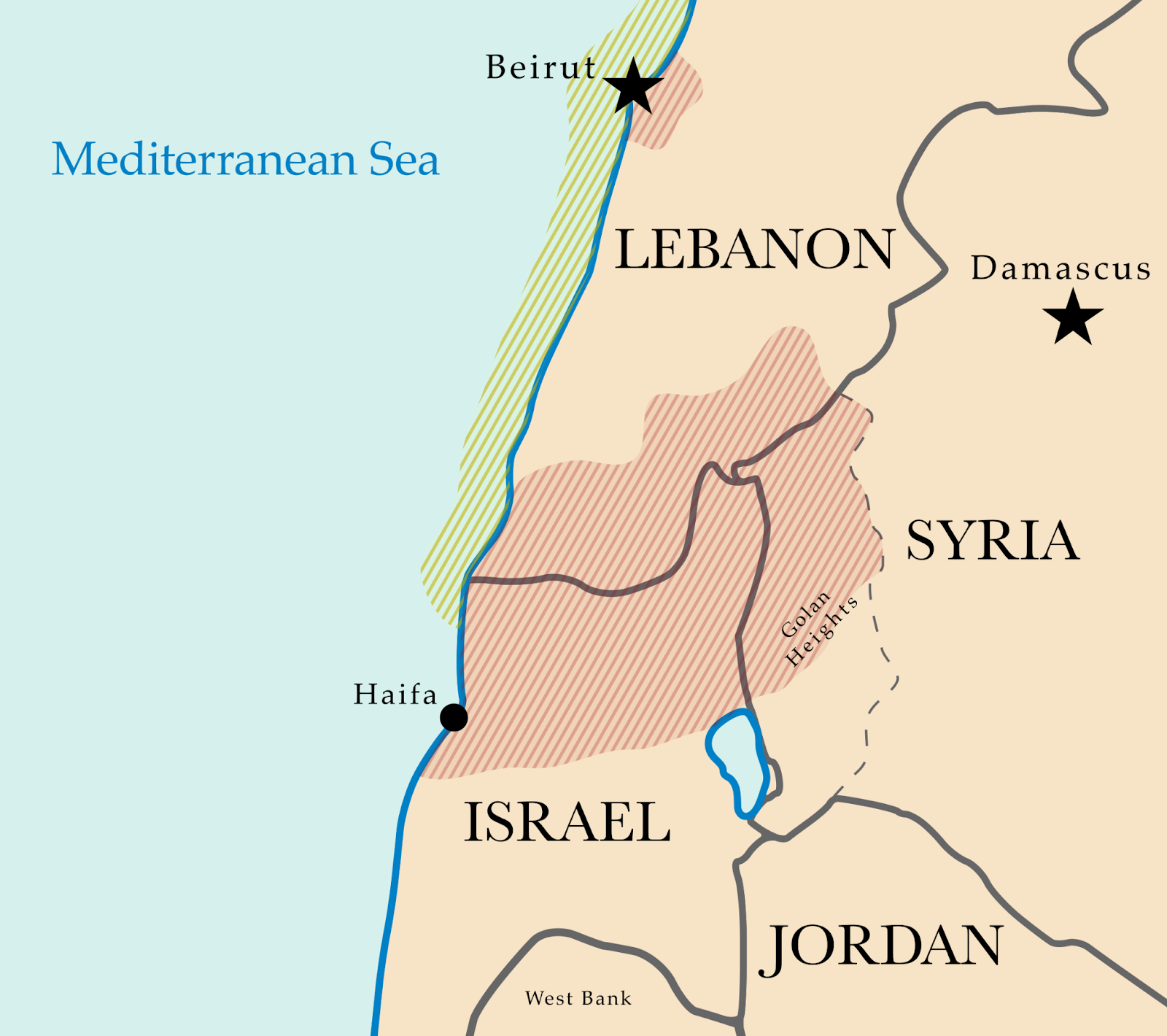As the focus once again shifts towards a mediation for the Israel-Lebanon conflict, with the US positioned as a potential mediator, the question arises whether such mediation would imply Lebanon’s recognition of Israel. This inquiry echoes a similar question raised during the conclusion of the 2022 maritime demarcation deal between Lebanon and Israel, albeit indirectly. Lebanon maintains a firm stance of non-recognition in response to this question. Conversely, the former Israeli prime minister Lapid suggests that “It is not every day that an enemy state recognizes the State of Israel, in a written agreement, in view of the entire international community.” This argument for de facto recognition primarily hinges on the existence of an international bilateral engagement explicitly mentioning the Israeli state’s name. Some scholars support this perspective, contending that the Border Agreement itself, coupled with the potential resolution of disputes through mediation, implies statehood recognition. However, Lebanon maintains that these actions do not amount to a formal recognition due to a lack of intent.
This issue prompts an examination of the principles governing the implied recognition of states. Recognition of statehood entails affirming that it meets the criteria of statehood as prescribed by international law, namely the conditions enshrined in Article 1 of the Montevideo Convention: 1) a permanent population, 2) defined territory, 3) government, 4) the capacity to enter into relations with other states. There are two main theories defining the legal significance of statehood recognition. The “constitutive theory” explains that an “unrecognized state” inherently lacks rights and obligations under international law. On the other hand, the “declaratory approach” takes a stance that prioritizes the factual circumstances and diminishes the authority of states to confer legal personality. Accordingly, it determines whether or not a state recognizes the international effects of statehood of another juridical entity. Indeed, Article 6 of the Montevideo Convention also mentions that the statehood recognition refers to the acceptance of “personality of the other with all the rights and duties determined by international law.” The declaratory approach will imply a commitment to treat the entity as a state on the international plane, whether this would be engaging in treaty making with that state, establishing diplomatic relations, or settling disputes through inter-state dispute settlement mechanisms. Not every interaction with a state implies recognition. For example, engaging in trade with state-owned companies or public enterprises might not prejudice the status of non-recognition. There needs to be an exercise of powers stemming from a state’s sovereign prerogatives, as exemplified above.
The examples cited, which could potentially constitute recognition in an implied sense, meaning without the existence of a formal declaration of recognition, indeed bear a prima facie resemblance to the actions taken by Lebanon.
In a nutshell, the Israeli-Lebanese maritime border agreement was reached in October 2022 via indirect bilateral talks and without express recognition. In fact, there are two separate agreements: one between Israel and the US, and the other between Lebanon and the US. Although technically separate, the two agreements are considered to be constituting a treaty between Israel and Lebanon. With the outbreak and escalation of hostilities in Gaza in October 2023 and Hezbollah’s support of Hamas, tensions between Israel and Lebanon intensified. Despite the deterioration of bilateral relations, there is a repeated will to make peace. Consequently, there are talks for a renewed US mediation for the issues surrounding the land border, natural gas drilling, disarmament of Hezbollah, and other subjects especially following the mediation led by Hochstein regarding the maritime border. Mediation, a method of resolving disputes typically used for states in the context of international law, might be employed to settle conflicts between two parties, especially when one does not recognize the other as a state. This raises the issue of whether the existence of mediation constitute implied recognition. The Lebanese response would be again, negative. Contrary to Israeli arguments, the Lebanese declarations of non-recognition even in cases of according an agreement and resorting to mediation are of significance. The reason for this lies in the legal character of recognition. Recognition entails both an understanding of the essential facts and an intention that, from the perspective of the recognizing state, it is accepting the legal consequences associated with recognition. The recognizing state must desire the legal and political results of recognition, as the act of recognition is inherently of discretionary nature. Lebanon has an explicit desire not to recognize the Israeli state as a state.
Certainly, if Lebanon had engaged with Israel in matters solely within the sovereign discretion of states, for example, by initiating a case against Israel in an international court where only states are parties, it could be argued that the intention to recognize would have been more apparent in this context. Similarly, if Israel were to initiate a case against Lebanon, for instance before the ICJ as a solely inter-state court, and if Lebanon did not raise a jurisdictional objection, it would have a weaker case to contest the assertions of recognition. Another implicit recognition scenario could involve an Israel-Lebanon agreement with a compromissory clause granting jurisdiction to the ICJ. Alternatively, if Lebanon-Israeli agreement included a clause referencing the VCLT, since the VCLT applies to treaties concluded between states, one might need to acknowledge this as an implied recognition. Mediation, however, is not exclusive to states. Similarly, the Lebanon-Israeli agreement might not necessarily constitute a “treaty” within the meaning of VCLT Article 2. Claiming recognition, in this context, becomes highly challenging given the ambiguity surrounding the intention regarding the recognition of acts, coupled with Lebanon’s explicit and open declarations of non-recognition.
Contrary to traditional theory, states no longer exclusively constitute the only subjects of international law. Consequently, the application of international law between these subjects is less likely to imply statehood recognition. This is because international engagements may not solely involve state actors, but also non-state entities. In conclusion, Israel will need stronger claims to assert recognition, with specific cases that exclusively pertain to states and state prerogatives as exemplified above.





